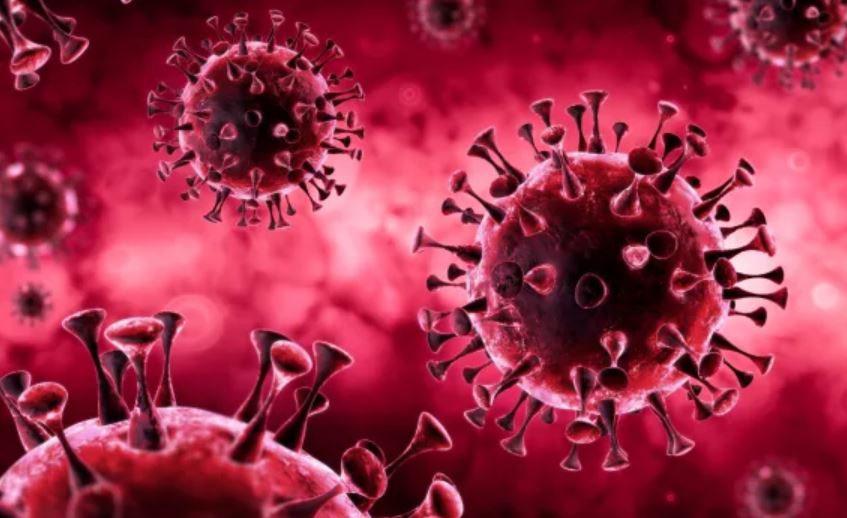A new study led by University of Oxford has found that previous infection, whether it was symptomatic or asymptomatic, does not necessarily protect you long term from COVID-19, particularly against new variants of concern.

The PITCH Study (Protective Immunity from T cells to COVID-19 in Health workers) examined how the immune system responds to COVID-19 in 78 healthcare workers who had experienced either symptomatic or asymptomatic disease. An additional eight patients who experienced severe disease were included for comparison.
One of the world’s most in-depth studies of immune memory, PITCH is funded by the DHSC and includes several NIHR Oxford Biomedical Research Centre investigators, as well as researchers from the universities of Liverpool, Sheffield, Newcastle and Birmingham, with support from the UK Coronavirus Immunology Consortium.
Blood samples were taken monthly from one to six months post-infection to examine different elements of the immune response. This included different types of antibodies – such as Spike-specific and Nucleocapsid-specific antibodies which are produced to target different parts of the virus, alongside B cells, which manufacture antibodies and keep the body’s memory of the disease, and several types of T cell.
The preprint report, posted on Research Square, details a highly complex and variable immune response following COVID-19 infection. Among the key findings were:
- Immune memory following COVID infection is measurable at six months but is highly variable between people
- Previous infection does not necessarily protect you long term from SARS-CoV-2, particularly variants of concern Alpha and Beta. Individuals who show little or no evidence of immune memory to COVID at six months post-infection are not able to neutralise the variants of concerns.
- We can use the immune response characteristics at one month post-COVID infection to predict which people will have durable immune responses at six months.
- People with COVID symptoms have variable immune responses that may decline over time and are not necessarily protected from SARS-CoV-2 variants.
- People who experienced asymptomatic infection tend to have lower immune responses across the many immune parameters we have measured.
- COVID-19 vaccines generate higher immune responses than natural infection, underlining the need for everyone to get vaccinated for maximum protection against this disease.
The researchers used a new machine learning approach – nicknamed SIMON – to identify detailed patterns in the data and to see if initial disease severity and the early immune response could predict longer-term immunity.
They found an early immune signature, detectable one month post infection and linked to both cellular and antibody immunity, which predicted the strength of immune response measured at six months post infection. This is the first time that such a signature has been found and improves understanding of the development of lasting immunity.
When serum samples (containing antibodies) obtained at one and six months post-infection were tested, the majority of samples from people who produced a weak immune response signature failed to show any neutralising antibodies against the Alpha variant, with none mounting a neutralising antibody response against the Beta variant.
This raises the possibility that the immune memory of these individuals does not provide sufficient protection to prevent reinfection by these variants.
While the majority of people who had symptomatic disease did have measurable immune responses at six months post-infection, a significant minority (26%) did not. The vast majority of people who experienced asymptomatic disease (92%) did not exhibit a measurable immune response at six months post infection.
This implies that people who have previously been infected with COVID-19 should not assume they are automatically protected against reinfection and highlights the importance of everyone getting their COVID vaccination when they are offered it.
Dr Christina Dold, study author from the University of Oxford, said: “Our study is one of the most comprehensive accounts of the immune response following COVID-19 in both symptomatic and asymptomatic individuals. We found that individuals showed very different immune responses from each other following COVID-19, with some people from both the symptomatic and asymptomatic groups showing no evidence of immune memory six months after infection or even sooner.
“Our concern is that these people may be at risk of contracting COVID-19 for a second time, especially with new variants circulating. This means that it is very important that we all get the COVID vaccine when offered even if you think you may have previously had COVID-19.”
Dr Adriana Tomic, study author from the University of Oxford, said: “Using machine learning is a new and exciting tool that allows us to dig down into large and complex datasets to draw out patterns that we would otherwise be unable to detect. For this study, we wanted to try to understand if there are immune factors that can predict how likely it is that a person can maintain immunity against SARS-CoV-2 over time.
“We found a signature present in the immune response one month after infection that can predict whether an individual will exhibit strong immune memory against SARS-CoV-2 six months later. This ‘immune signature’ comprises aspects of both T cell and antibodies responses, indicating that both immune components are important for strong and durable protection against SARS-CoV-2.”

Professor Eleanor Barnes (pictured left), PITCH study lead from the University of Oxford, said: “Gaining a detailed understanding of the immune response after COVID-19 infection is critical in allowing us to reduce reinfection, tackle variants and to helping us to design future vaccination strategies.
Professor Susanna Dunachie, PITCH study lead from the University of Oxford said: “The PITCH study has allowed us to work collaboratively at scale and speed to better understand how our bodies respond to COVID-19 infection and the immune responses they develop. While the setting up a study of this type during a pandemic is challenging, the clear data found by PITCH shows how informative this approach can be.”
As well as the DHSC, the PITCH study is also supported bythe UK Coronavirus Immunology Consortium (funded by UK Research and Innovation and the National Institute for Health Research).
PITCH is a national collaboration of five universities aiming to understand the way the immune system responds to the COVID-19 virus and vaccination in healthcare workers. PITCH is an extension to the UK SIREN Study and looks at T cell and other immune responses to SARS-CoV-2.